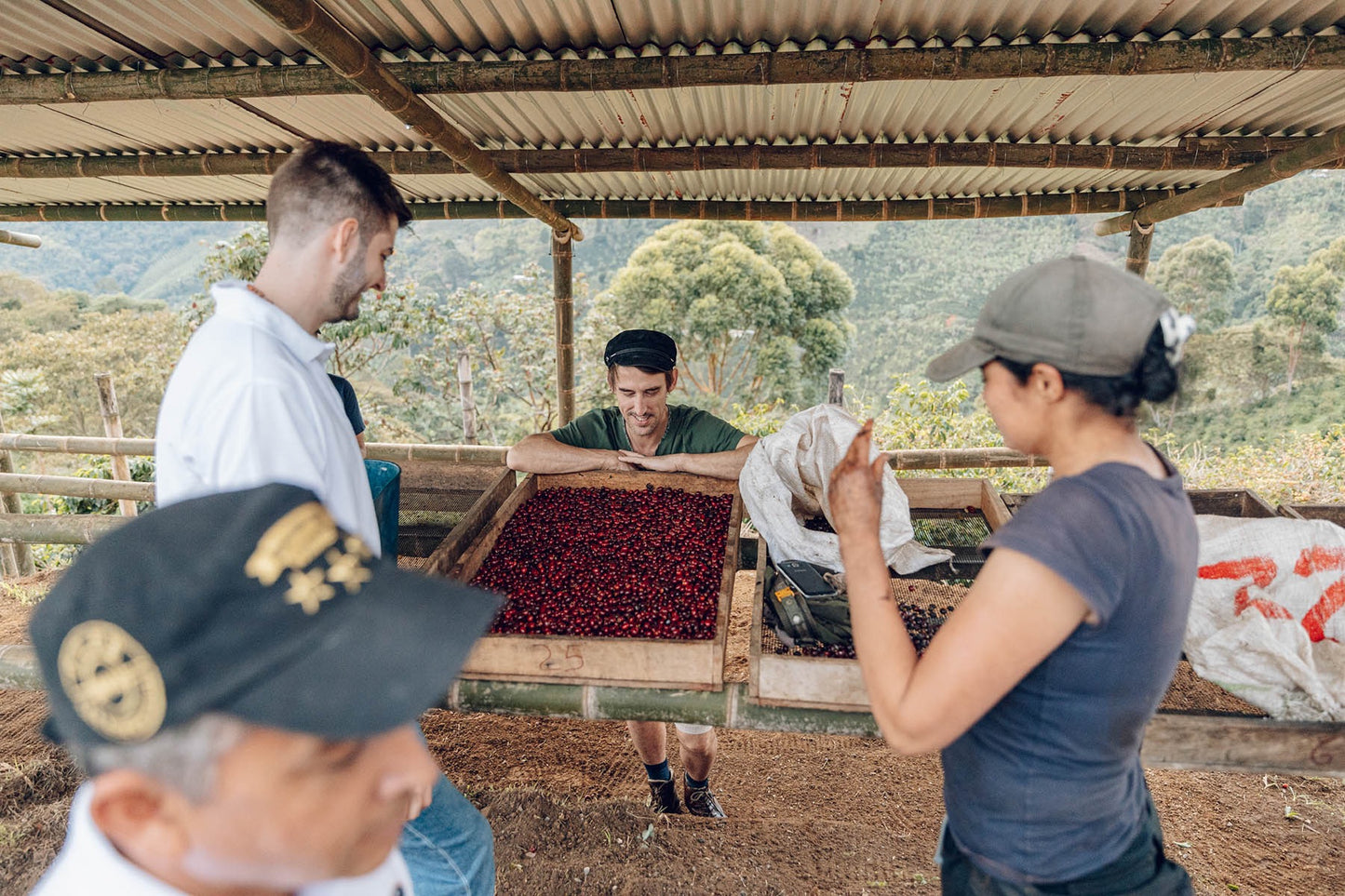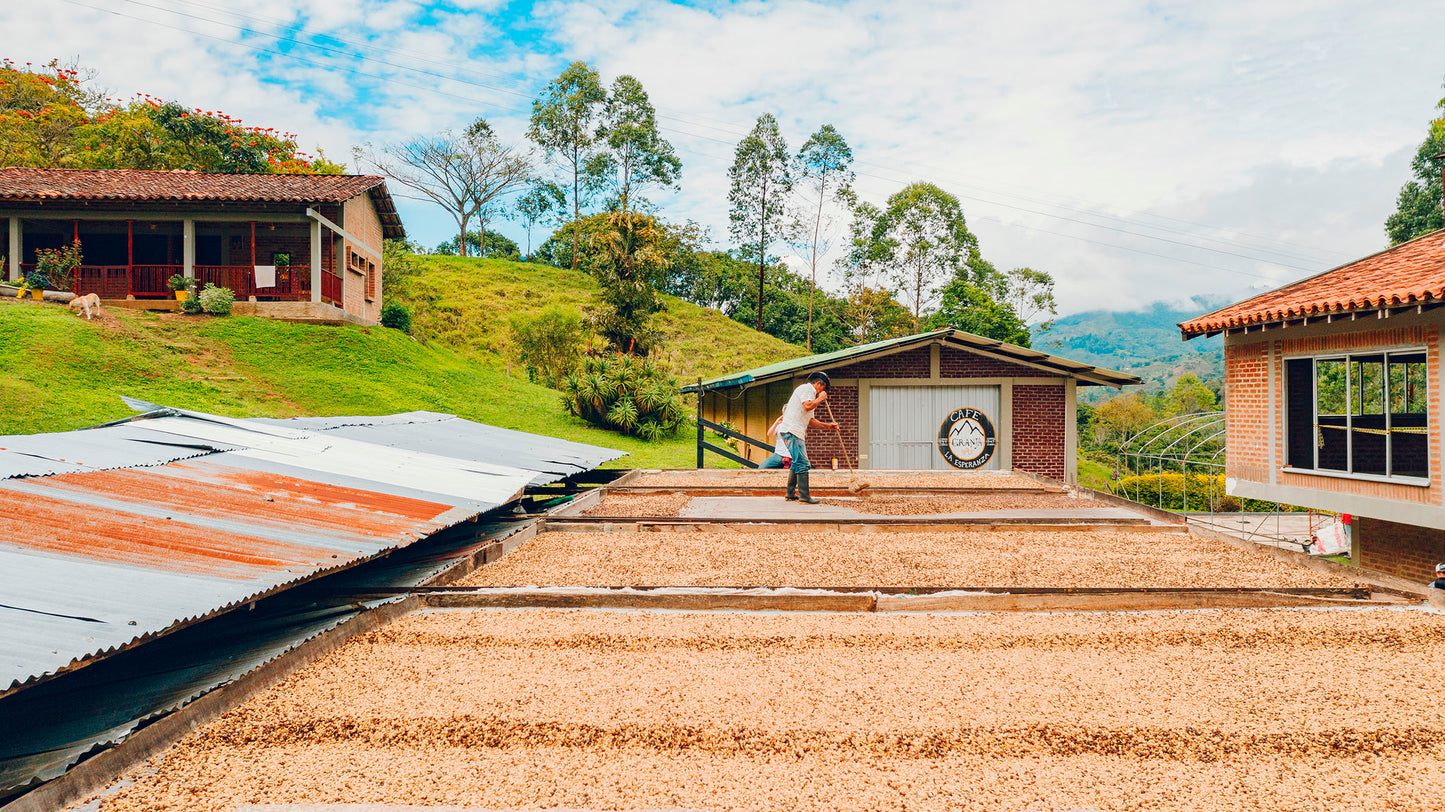
In natural/dry processing, the flesh of the cherry is removed from the seeds (beans) without the use of water. To do this, the cherries must be laid out in the sun to dry until they reach around 11% moisture content. During this time, they will ferment. Then at the last moment of processing, a huller removes the dried flesh, A process that when done well, lends itself to a revelatory kind of coffee taste experience. It is a time-consuming process, and a process that's often not possible in humid climates. Too much moisture can lead to over-fermentation – and, in turn, undesirable flavor profiles.
A washed coffee tends to have a cleaner profile than a natural. But a natural coffee can offer a sweet, smooth cup with a heavy body. As a result, they have seen increasing popularity in recent years. Despite that, Dr Diaz believes many in the coffee industry are biased against them.
“As long as we don’t have any special cupping formats or protocols for naturals, I would say that there is definitely a bias against non-washed coffees,” says Mr. Diaz. For him, competitions are the key to changing this. “Competitions are still one of the main ways to find quality, but we don’t have any competitions [solely] for naturals except for the special case of Brazil. And that’s for obvious reasons, 90 percent of the Arabica coffee there is not washed…”
“You need a different approach when assessing naturals. The natural process is less controllable, so you have more uneven cups. If you apply the same standards as for washed coffee, you will end up with a bias against naturals and honey.”
Special cupping formats for naturals might sound radical, but Diaz points to other industries with similar distinctions. “I think it’s comparable to red and white wine, where you also have two different categories and don’t cup them together. They are different in a lot of ways, so they should be judged differently.”
There is no question a new trend has emerged over the past 5 years among coffee buyers, roasters, and coffee shop owners, especially those close to production. The “experimental lot”. The aim of these lots is to showcase a signature natural or honey-process that lends itself to wildly exotic flavor profiles.
The idea is admirable. Like with micro-breweries and micro-roasteries, unique micro and nano lots can be a beautiful thing. And many of these farms produce unique coffees from which the buyer and producer alike benefits.
However for every incredible natural one producer creates there's another producer with a horror story.....
“The horror stories you hear usually involve a farmer who has worked very hard and ends up producing bad, over-fermented coffee that they now have to sell at a loss,” says Dr Diaz.
“We don’t have very much technology or knowledge when it comes to processing naturals. It’s all very artisanal, whereas we know a lot more about washed coffee. The problem is sometimes coffee professionals who love naturals will interfere in the farmers’ work. They will give feedback and recommendations… Usually it’s well intentioned, but it is a very risky practice. It’s quite easy to corrupt the beans and ferment the coffee instead of drying it.”
However, Dr. Diaz tells me that this is probably an inevitable stage the coffee industry has to go through. It’s a necessary part of an evolution towards increasingly delicious natural processed coffee.
Dr. Diaz also believes that certain farms will benefit from the growing market for naturals and experimental coffee cherry processing. “Lowland coffees tend to taste flat when they are washed processed,”. “At least a natural is going to be interesting. Also, you can do naturals anywhere where there is infrastructure for drying.”
Diaz believes East Asia could ultimately be the driving demand force for a newer appreciation of natural and experimental coffees. “Maybe you could even say that there is a bias for natural processed coffees in certain markets. In East Asia, there is a very strong culture for fermented food, and that same preference carries over to coffee. You have a lot of stuff like kimchi, soy sauce, fermented beans and fish… and sophisticated cultures around it. In particular, Japanese buyers tend to be very keen on naturals.”
The market for naturals has seen an incredible change in the last 10 years.
Producers are getting better at producing cleaner and less funky versions
Auctions and competitions are seeing naturals win more often than not these days
And even "coffee geeks" are reluctantly starting to accept them too
modcup has been buying and promoting naturals since day 1 of its formation, and still sources and roasts with FAC01 in the forefront of its mind.
FAC01 Coffee is a Fruit.
modcup X japan.....one day we hope......








